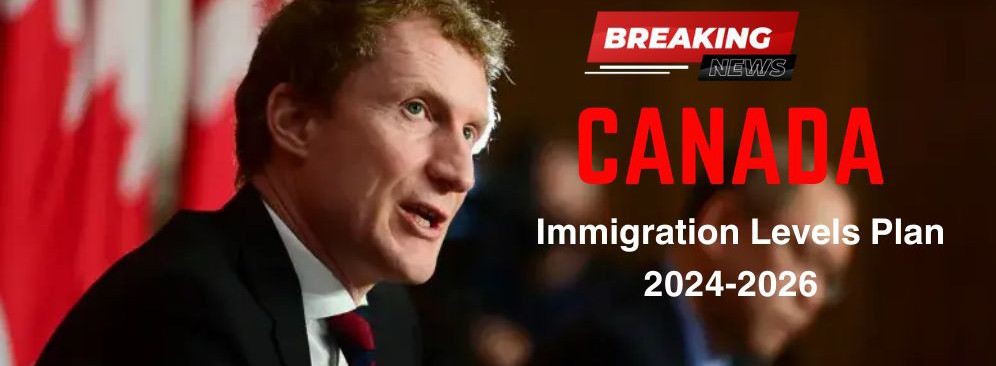
Canada has revealed its Immigration Levels Plan, outlining the intended number of new permanent residents to be admitted into the country over the next three years.
The immigration targets for Canada will remain consistent with the current goals, aiming to admit 485,000 new immigrants in 2024. Following this, in both 2025 and 2026, Canada aims to welcome 500,000 new immigrants annually.
These targets align with those announced in the Immigration Levels Plan 2023-2025.
In 2024, Canada intends to admit approximately 281,135 immigrants under the economic class, constituting 58% of the annual target. By 2026, this figure is expected to rise to 301,250 immigrants, making up 60% of the annual target.
In the family class category, Canada aims to admit 114,000 immigrants in 2024, accounting for 24% of all admissions. This number is projected to increase to 118,000 immigrants by 2026, maintaining the same percentage of all admissions.
The humanitarian admission targets for 2024 will be 89,865 immigrants, constituting about 19% of all admissions. This category encompasses refugees, protected persons, and individuals admitted for humanitarian, compassionate, or other reasons. By 2026, the target will decrease to 80,832 immigrants, comprising 16% of admissions.
Express Entry, a popular program for obtaining permanent residency in Canada, is projected to have 110,700 permanent resident admissions in 2024. This number is set to rise to 117,500 immigrants in both 2025 and 2026.
The Provincial Nominee Program (PNP) targets 110,000 immigrants in 2024, which will increase to 120,000 in 2025, and remain at 120,000 in 2026.
For Spousal, Partner, and Children sponsorship, the target is 82,000 admissions in 2024, and this number will rise to 84,000 in both 2025 and 2026.
In the Parents and Grandparents Program (PGP), the target is 32,000 immigrants in 2024, followed by 34,000 immigrants in both 2025 and 2026.
For those seeking to benefit from these plans, the first step is to determine eligibility. This can be done by answering a set of questions to ascertain if minimum requirements are met. Following this, applicants should check their score using the Comprehensive Ranking System (CRS) if they are eligible for one or more of the Express Entry programs.
Once eligibility is established, candidates must gather the necessary documents, which may include a passport or travel document, language test results, proof of Canadian education, and proof of funds.
After preparing the required documents, applicants can proceed to fill out their Express Entry profile. However, it’s important to note that entering the pool or completing the profile does not guarantee an invitation to apply for permanent residence.
Invitations are extended by Immigration, Refugees and Citizenship Canada (IRCC) to candidates with the highest scores in the pool. Those who receive an invitation will have 60 days to submit their application.


